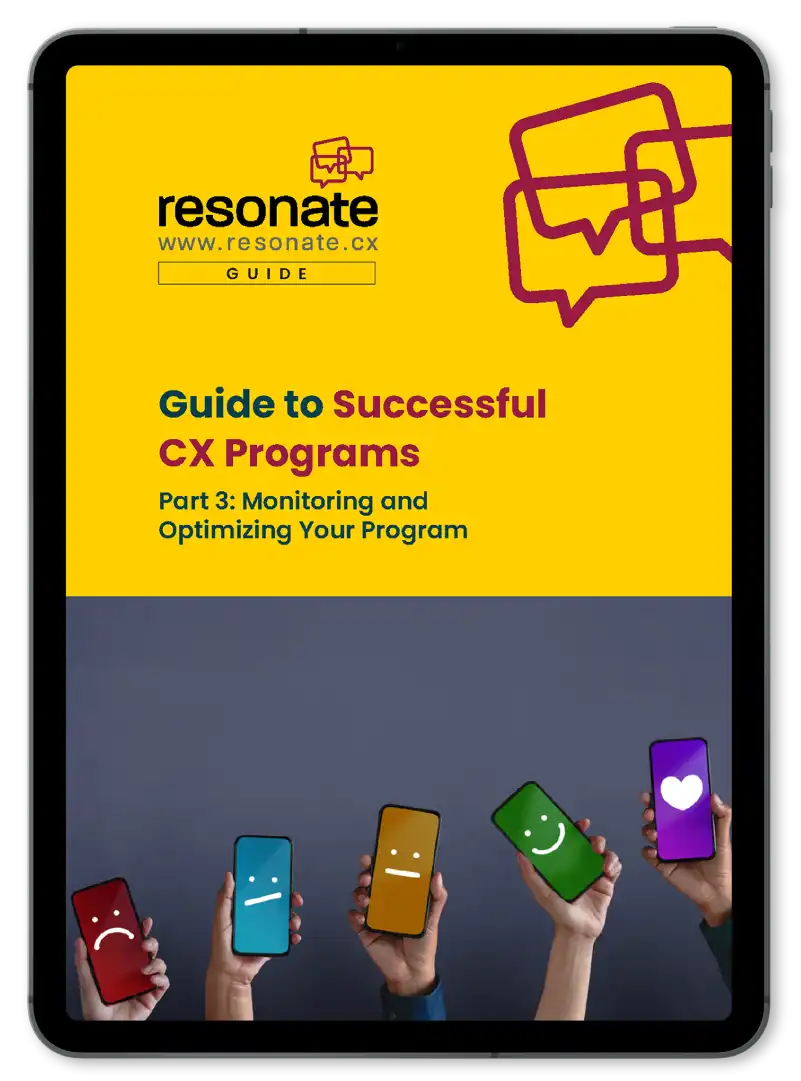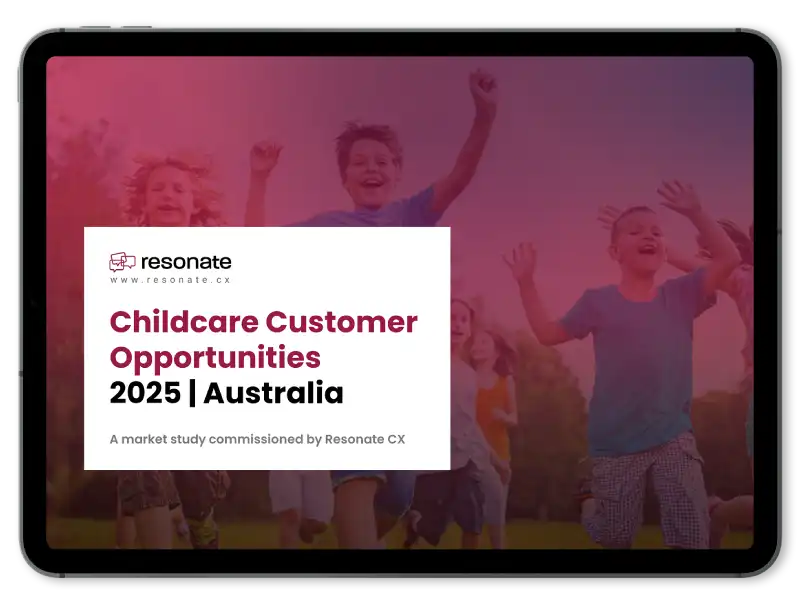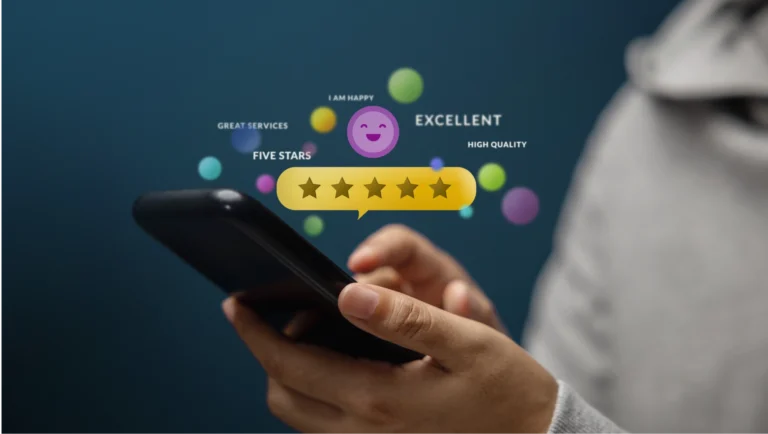How do you improve NPS?
Improving your Net Promoter Score (NPS) requires a combination of quick wins (closing feedback loops, timing surveys correctly) and strategic initiatives (personalising experiences, building customer-centric culture). You can do that by:
- Close the feedback loop within 24-48 hours to recover detractors
- Time your NPS surveys strategically (right after positive interactions)
- Personalise customer experiences based on behaviour and preferences
- Invest in employee experience because happy employees create happy customers
- Make NPS part of your company culture, not just a CX team metric
- Track progress quarterly and celebrate improvements to maintain momentum
The Net Promoter Score (NPS) is one of the most powerful metrics that you can use to understand how customers truly feel about your business. It tells you whether customers would recommend you to others, which is a clear indicator of their loyalty and level of satisfaction with your brand.
Why Improving Your NPS Score Matters More Than Ever
Here’s what makes NPS truly valuable: it’s predictive, not just descriptive. A high NPS doesn’t just mean you have happy customers today; it signals future growth through word-of-mouth referrals, increased customer experience metrics like customer lifetime value, and stronger brand reputation.
Companies with high NPS scores consistently outperform their competitors. Research shows:
- Revenue Growth: Businesses with NPS scores above 50 grow revenue 2x faster than competitors
- Customer Retention: A 10-point NPS increase can correlate with a 3-5% improvement in retention rates
- Acquisition Costs: High-NPS companies spend less on customer acquisition. Promoters do the marketing for you
- Customer Lifetime Value: Promoters have 6-8x higher lifetime value than detractors
The bottom line: Learning how to improve NPS builds a sustainable, customer-driven growth engine.
But improving your NPS doesn’t happen overnight, but it is possible to make incremental progress with intentional action, a customer-first mindset, and an NPS platform to help piece things together. In this article, you’ll discover 12 tactics to help you do just that, ranging from quick fixes to long-term strategies and cultural shifts that can elevate customer experience throughout the CX Program phases.

In this guide, you’ll learn:
Effective Strategies to Increase NPS
How To Improve NPS Fast
One of the simplest ways to improve NPS scores is to start adopting small, impactful changes. These quick wins don’t require massive overhauls, but they can deliver fast results and set you up for longer-term success.
1. Close the Feedback Loop Immediately
When a customer gives you feedback, especially negative feedback, it’s crucial to respond quickly. Closing the loop or completing the communication circle means you acknowledge the issue, show that you care, and take meaningful steps to address the concern. This, in turn, builds customer trust and increases the chances of turning detractors into promoters.
Studies show that companies that close the loop with detractors see a 3x improvement in NPS scores compared to those who don’t follow up.
Take the example of Vodafone New Zealand. After identifying key pain points in its support process, the company implemented a closed-loop system to allow managers to call back unhappy customers within 36 hours. This not only helped resolve issues quickly but also improved customer sentiments over time.
Rebel successful CX program with Resonate CX provides a clear example of how rapid closed-loop feedback drives immediate improvements. Rebel established a robust program that specifically empowered store managers to promptly receive customer feedback and resolve issues instantly. This localised, fast action is the essence of closing the loop: it ensures that issues identified through NPS surveys or other channels are not just reported up the chain, but fixed on the spot by the team directly responsible for the customer’s experience.
Action step:
- Set up automated alerts that notify the right team members immediately when detractor scores come in. Create templates for initial outreach, but always personalise the follow-up.
2. Ask the Right Follow-Up Questions
Adding a simple “Why did you give us this score?” or “What could we do better?” to your NPS survey can unlock valuable insights. The use of open-text responses can help you understand the reasons behind a score, giving your team the context needed to take action.
- For Detractors, you can ask: “We’re sorry to hear that. What specifically disappointed you about your experience?”
- For Passives, you can ask: “What’s the one improvement that would make the biggest difference to your experience?”
- For Promoters, you can ask:“Would you be willing to share your experience in a review or testimonial?”
Scoot uses this customer experience strategy by enhancing its post-flight surveys with enquiry channels that support both text and audio inputs. This flexible interface lets customers express feedback in the format they prefer. The collected insights can then be shared across departments, including frontline staff, to directly inform service and experience improvements.
Action step:
- Ensure you have one follow-up question to your current NPS survey. Start analysing patterns in the responses monthly.
3. Time Your Feedback Collection
When you ask for feedback also matters. Sending an NPS survey right after a successful interaction, such as a product purchase or issue resolution, can result in higher response rates and more accurate reflections of customer sentiment.
The day and hour can also matter, as respondents are more likely to complete surveys if they have free time. Hubspot has consolidated five studies that focus on the best time to send surveys to customers, revealing that timing can impact response rates by up to 30%.
Resonate CX’s BCF case study emphasises that collecting feedback at the right time is crucial for generating measurable business impact. The success of their program relies on feedback that is timely enough to be harnessed effectively to inform product and service decisions.
Optimal timing strategies:
Best times to send NPS surveys:
- Immediately after positive interactions: Purchase completion, successful support resolution, product delivery
- After key milestones: Onboarding completion, first month anniversary, renewal period
- During engagement peaks: When customers are actively using your product/service
- Strategic days/times: Mid-week (Tuesday-Thursday), mid-morning (10-11 AM) or early evening (6-7 PM)
Times to avoid:
- During crisis or known issues (wait until resolved)
- Before customers have experienced your product/service
- Too frequently (minimum 90 days between relationship surveys)
- Weekends or holidays (lower response rates)
- End of month/quarter (customers are busiest)
Action step:
- Review when you’re currently sending NPS surveys. Test sending at different times and measure response rate + score differences.
4. Make Your NPS Survey Easy to Complete
Long surveys are a turnoff for many respondents. To improve response rates and data quality, keep your NPS survey short, mobile-friendly, and available on the customer’s preferred platform, be it email or in-app.
Understanding this, popular e-commerce brand ASOS used mobile channels to conduct feedback surveys. This made it easy for customers to complete the survey in under a minute.
Survey optimisation checklist:
- Keep it short: NPS question + 1-2 follow-ups maximum (under 2 minutes to complete)
- Mobile-first design: 60%+ of surveys are completed on mobile devices
- Visual clarity: Use clear rating scales with visual indicators (color coding, emojis)
- Multi-channel distribution: Email, in-app, SMS, web—meet customers where they are
- Progress indicators: Show customers how long the survey will take
- Skip logic: Only show relevant follow-up questions based on score
- Keep it short: NPS question + 1-2 follow-ups maximum (under 2 minutes to complete)
- Mobile-first design: 60%+ of surveys are completed on mobile devices
- Visual clarity: Use clear rating scales with visual indicators (color coding, emojis)
- Multi-channel distribution: Email, in-app, SMS, web—meet customers where they are
- Progress indicators: Show customers how long the survey will take
- Skip logic: Only show relevant follow-up questions based on score
- Thank you page: Acknowledge their time and explain what happens next
Action step:
- Take your current NPS survey on a mobile phone. Is it easy to complete? If not, simplify immediately.
5. Empower Frontline Teams to Act on Feedback in Real-Time
When frontline staff have access to real-time feedback and customer data, they’re in a better position to make things right on the spot. Customer experience platforms can help by surfacing relevant insights right where your teams need them. Resonate CX Platform, for instance, features a frontline dashboard that staff members can use to get real-time customer feedback, read it, and act on it.
Apple makes good use of this strategy. The brand’s retail employees are trained to spot dissatisfaction in the moment and resolve it on the floor. They also have access to previous interactions to avoid asking customers to repeat themselves.
These quick wins don’t require a full transformation—they’re about making the most of what you already have. By removing friction and reacting with care, you’re already setting yourself apart.
Action step:
- Give your customer-facing teams access to real-time NPS data this month. Start with one team as a pilot.
Strategic Moves for Sustained NPS Growth
To keep your NPS growing over time, you’ll need to go beyond surface-level changes to a next-level CX program that focuses on building stronger, more personalised, and resilient customer relationships.
6. Personalise the Experience
Customers want to feel seen by the businesses they transact with. You can make sure they feel valued by optimising your CX program by personalising their experiences. By customising emails, onboarding steps, or support journeys, you can boost loyalty.
The personalisation advantage:
- Companies that excel at personalisation see 40% more revenue from those activities compared to average players
- Personalised experiences increase customer satisfaction by 20%
- 80% of customers are more likely to purchase from brands that provide personalised experiences
Netflix exemplifies this by offering recommendations that are tailored to each user based on viewing history and preferences. This level of customisation makes the platform more enjoyable and increases customer satisfaction.
Action step:
- Choose one customer touchpoint to personalise this quarter. Measure NPS before and after implementation.
7. Invest in Employee Experience (Internal or Employee NPS)
The link between employee experience or happiness and customer satisfaction is well-established. Improving internal or employee NPS (eNPS) helps foster a culture where employees are more engaged and motivated to deliver great service.
The employee-customer connection:
- Companies with engaged employees outperform competitors by 147%
- Businesses with top-quartile employee engagement see 10% higher customer metrics
- Organisations with high eNPS (Employee Net Promoter Score) have 21% higher profitability
Why unhappy employees create detractors:
- Disengaged employees provide minimal effort in customer interactions
- Frustrated employees may consciously or unconsciously sabotage experiences
- High employee turnover creates inconsistent customer experiences
- Burned-out employees lack empathy for customer frustrations
This is a strategy that worked well for Adobe. The leading digital media and marketing solutions provider invested in employee well-being by offering flexible work policies and mental health resources. As a result, employee satisfaction improved, and their CX metrics continued to grow.
Action step:
- Survey your employees’ likelihood to recommend working at your company. Improving your eNPS will help improve your NPS scores.
8. Implement Always-On Relationship Feedback
Instead of only surveying at major touchpoints, some companies maintain ongoing feedback collection to keep their finger on the pulse. This helps identify emerging issues before they become serious problems.
Spotify uses pulse surveys to monitor ongoing satisfaction with the service’s music discovery feature. These real-time insights help the company refine user experience.
Strategic improvements like these take time and coordination, but they pay off well. These help businesses achieve their goal of building a consistent, rewarding experience over the long haul.
Action step:
- Implement a simple always-on relationship feedback loop and review results regularly to spot trends, monitor brand health, and identify long-term experience improvement opportunities.
Culture and Advocacy Building
The most successful companies don’t just measure NPS, as they also embed it into their culture. These strategies are about turning happy customers into advocates and making NPS everyone’s business.
9. Empower Promoters
Your most loyal customers are your best marketers. It’s in your best interest, then, to encourage them to leave reviews, share their stories, and refer friends.
Referral marketing or promoter advocacy is incredibly powerful: referred customers tend to have 16% higher lifetime value than non-referred ones, and 92% of people trust recommendations from people they know. Because of that trust, getting new customers through promoters is much cheaper — referral CAC can be significantly lower than paid acquisition. Moreover, real customer reviews—rooted in genuine experiences—convert far better than crafted marketing copy.
Dropbox did this well by offering bonus storage for referrals, turning promoters into active brand advocates. You can also spotlight top promoters in newsletters or social media, turning customer love into powerful, authentic marketing that doesn’t cost much but delivers high trust value.
Action step
- Email your promoters this week asking if they’d be willing to share their experience. You’ll be surprised how many say yes.
10. Share NPS Insights Across Teams
NPS data isn’t just for the CX team. It’s important to share insights with marketing, product, and operations so they, too, can act on feedback in meaningful ways.
M&S Bank, for example, deployed a cross-functional team that assessed the customer journey and made customer feedback accessible across departments. This allowed different teams to take ownership of improvements based on real-time insights. By embedding NPS data into everyday decision-making, M&S Bank created a culture where everyone plays a role in delivering better customer experiences.
Action step:
- Schedule a meeting with heads across teams like head of product, marketing, and operations (invite more heads if you can) to share this quarter’s NPS insights. Ask each department to identify one improvement they’ll own.
11. Benchmark and Set Clear Improvement Targets
It’s also crucial to know where your company stands. You can find out by comparing your NPS to industry averages and setting quarterly goals. Knowing your current standing lets you set benchmarks for your organisation. Then, treat every improvement as a cause for recognition. These celebrations can help keep your team motivated and reinforce a culture of progress and accountability.
Action step:
- Find your industry’s average NPS and compare it to your current score. Set a goal to close 50% of the gap within 12 months.
12. Make NPS Part of Your Culture
Building a customer-first culture starts at the top. Leaders must champion the importance of NPS, and businesses should form cross-functional teams to review scores, plan initiatives, and track KPIs. Some companies even share NPS results with shareholders to show their commitment to customer satisfaction. This practice ensures that NPS insights are reviewed regularly by senior leadership and discussed across teams to inform product and service enhancements.
When your company culture puts NPS at the centre, it changes everything. Culture-driven companies thrive because everyone is rowing in the same direction.
This can be done with Resonate.cx as it makes it easier to improve NPS by bringing all your Voice of Customer signals into one connected CXM platform.
Instead of juggling scattered surveys and feedback tools, Resonate unifies NPS, CSAT, CES, reviews, and support insights — then uses AI to surface the themes and root causes behind customer sentiment to provide a clear, actionable direction on what’s driving detractors, what’s creating promoters, and which improvements will have the biggest impact on loyalty and retention.
Action Step:
- Schedule a monthly, cross-functional NPS review meeting with leadership and customer-facing teams to discuss trends, prioritize improvement initiatives, and assign owners for follow-up actions.
Achieve NPS Success by Adopting These Proven Winning Strategies
Learning how to increase NPS isn’t a one-and-done project. It’s a continuous cycle of listening, acting, and evolving. Start by picking 2–3 strategies that fit your business, and then adopt more from there.
By taking these intentional steps, you’ll be able to drive real change—both in customer loyalty and business growth. Keep listening, keep adapting, and your NPS will reflect the value you bring to your customers.












